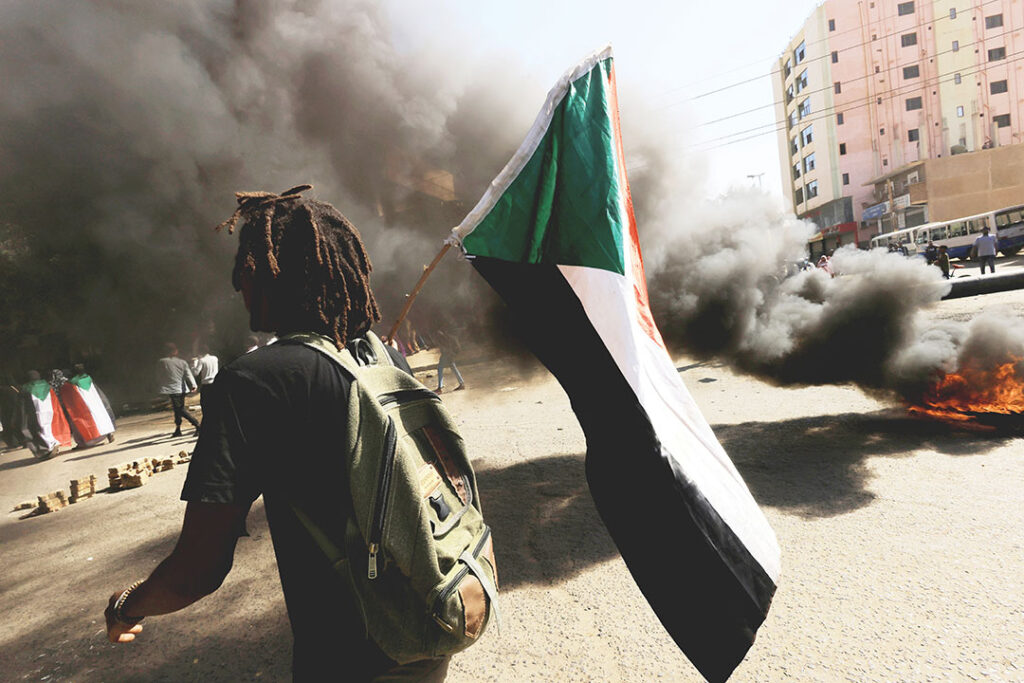As two generals in Sudan wreak havoc on their nation in their own quests for wealth and power, other countries have pitched in, looking for a piece of the action.
The war, which began in 2023, has devastated the country. Some estimates place the death toll as high as 150,000. More than 14.6 million people have lost their homes, making it the world’s worst displacement crisis. It also has brought the country to the brink of famine, with
30.4 million people — more than half the country’s population — needing humanitarian support.
The warring factions in Sudan’s “Generals’ war” are the Sudanese Armed Forces (SAF) under Gen. Abdel Fattah al-Burhan and the opposing paramilitary Rapid Support Forces (RSF) under the former Janjaweed leader known as Hemedti. Neither side has articulated a clear political vision, indicating that competing claims to the nation’s wealth, not ideology, are driving the conflict. That wealth includes the country’s gold, copper and iron ore mines; oil; and agricultural production.
Foreign nations, particularly in the Gulf region, are opportunistically backing sides in the conflict as they seek access to Sudan’s natural resources; its 850-kilometer shoreline on the Red Sea; and its strategic position as a gateway to the Sahara, the Sahel and the Horn of Africa.
“The Sudan conflict has evolved into one with multiple sides as well as different historical and geo-political dynamics,” wrote Theophilus Dirisu for Quays News. “Sudan has become a microcosm of a larger powerplay in which the rising powers of the Middle East seek to project their power and gain an advantage over their rivals.”
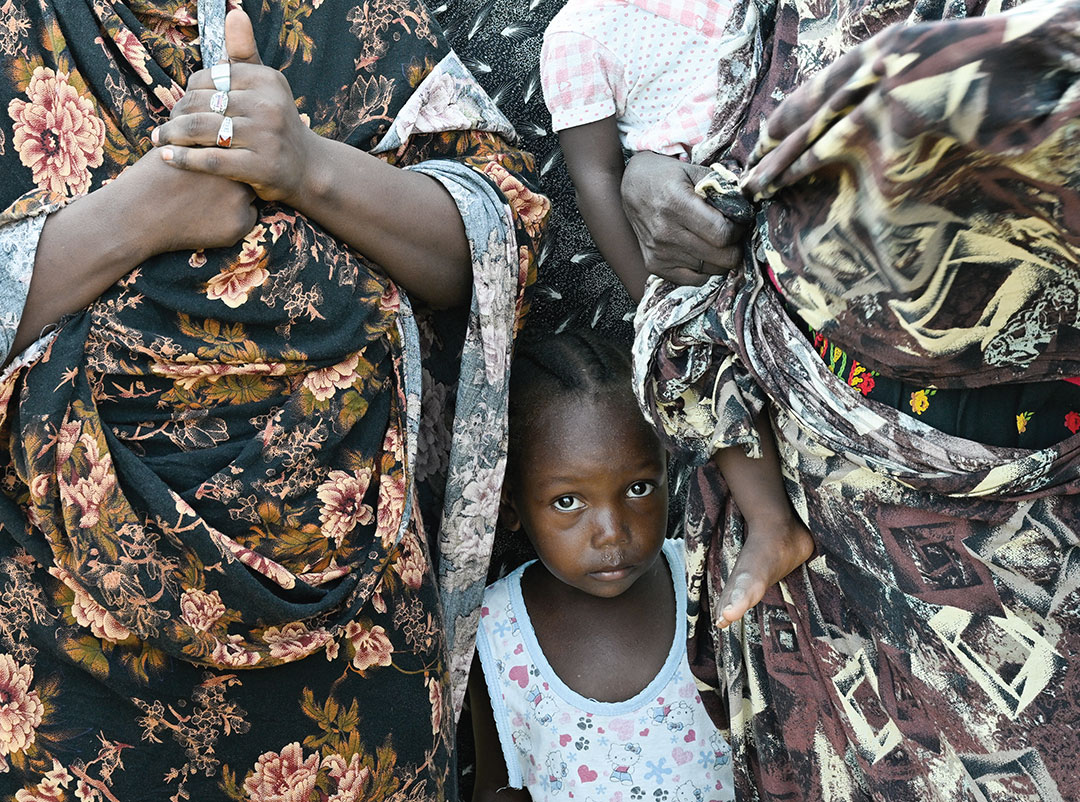
The countries with stakes in the war extend beyond Africa and the Middle East. China, Iran, Russia, Saudi Arabia and the United Arab Emirates have openly taken sides, and in some cases have provided weapons and materiel that continue to fuel the conflict. In addition to expanding their influence and developing future Sudanese revenue streams, some nations supplying weapons through arms sales actually stand to gain financially the longer the war goes on.
“Sudan seems to be an easy win that you can get on the cheap,” Sudanese academic Magdi el-Gizouli said in a Bloomberg report. “You can get the Red Sea coast, you can get political influence in Khartoum, you can get mineral resources at a very cheap price. You can make a hell of a profit out of a country like Sudan.”
IRAN TRADES ARMS FOR INFLUENCE
Since the beginning of 2024, Iran has been flying cargo planes to the SAF-controlled Port of Sudan. The BBC and other news sources have reported evidence of Iran supplying the SAF with armed drones.
“Reports suggested that these deliveries included drones that were later used to bomb a path through Omdurman, breaking a siege,” Quays News reported. “Iran wants to expand its influence in Africa, particularly on the Red Sea.”
Sudan had a history of military cooperation with Iran before relations ended in 2016 due to a conflict between Iran and Saudi Arabia, when Sudan sided with Saudi Arabia. Since the start of the current conflict, the Sudanese government has restored relations with Tehran.
“Iran is looking for a foothold in the region,” Suliman Baldo, director of the Sudan Transparency and Policy Observatory, told the BBC. “If they find geostrategic concessions, they will certainly provide more advanced and numerous drones.”
In March 2024, Iran petitioned Sudan to establish a naval base at the Port of Sudan on the Red Sea. The SAF rejected Iran’s request. Despite the rejection, Iran reportedly has supplied the SAF with Mohajer-6 drones, according to the Atlantic Council.
In February 2025, Iran and Sudan disclosed a new alliance, with then-Sudanese Foreign Minister Ali Youssef meeting in Tehran with his Iranian counterpart, Abbas Araqchi, and Iranian Parliament Speaker Mohammad Bagher Ghalibaf. Al Jazeera and Iranian news agencies said the two countries were working toward “a clear plan to promote mutual interests.” They reportedly agreed to mutual exemptions from entry visas for diplomatic, special and official passport holders. Reports indicate that Iran still is negotiating with Sudan for an Iranian naval base on the Red Sea.
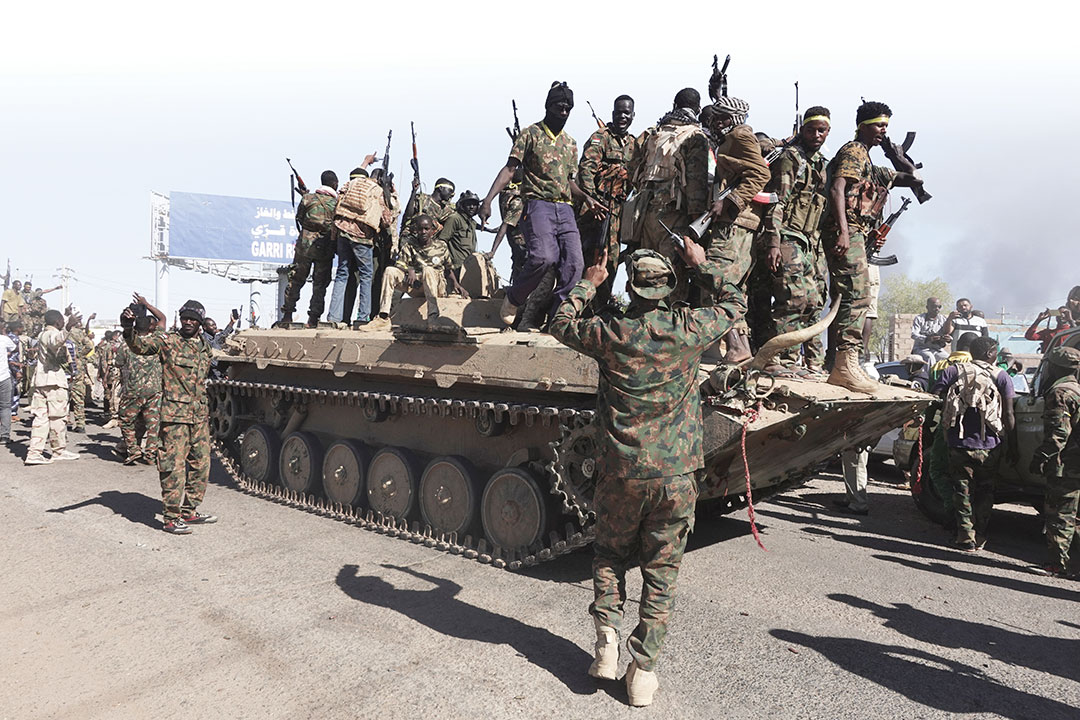
RUSSIA WANTS NAVAL BASE
In the past, Russia’s mercenary Wagner Group has supported Hemedti and the RSF, motivated by Hemedti’s control over Sudan’s gold mines. The RSF has helped smuggle vast quantities of bullion to the Middle East, where it is sold on the world market. The gold shipping has enriched Hemedti and provided crucial financial support to the RSF. It also has helped fund Russia’s war with Ukraine, researchers say.
In exchange for access to gold mines, Wagner has supplied the RSF with surface-to-air missiles, enabling them to target and shoot down SAF fighter jets, according to reports.
Sudan shares a 382-kilometer border with Libya in its far northwest, which has proved to be an advantage for the Wagner Group, now known as the Africa Corps. The Russian mercenaries are aligned with Field Marshal Khalifa Haftar, eastern Libya’s strongman ruler. Reports show that the mercenaries have been engaged in extensive fuel smuggling across the border for the benefit of the RSF. Between April and October 2024, Russia supplied 2.8 million barrels of diesel and gasoline to Sudan, accounting for nearly half of the country’s fuel imports, Bloomberg reported.
Russia’s involvement in Sudan also has been driven by its strategic interest in securing access to the Red Sea. After allying with the RSF since the beginning of the war, Russia shifted its alliance to the SAF in 2024. The switch was sparked by a stalled 2017 agreement that had promised Moscow a naval base at Port Sudan. After diplomatic meetings in mid-February 2025, Sudan agreed to allow a Russian naval base in the country.
A Russian naval base in Sudan would support Russia’s strategic objectives in Africa and the Mediterranean, “while decreasing Russian reliance on bases in Syria after the collapse of the Bashar al Assad regime,” the Institute for the Study of War reported. The institute also noted that Russia could allow Iran to operate from the proposed base in Port Sudan.
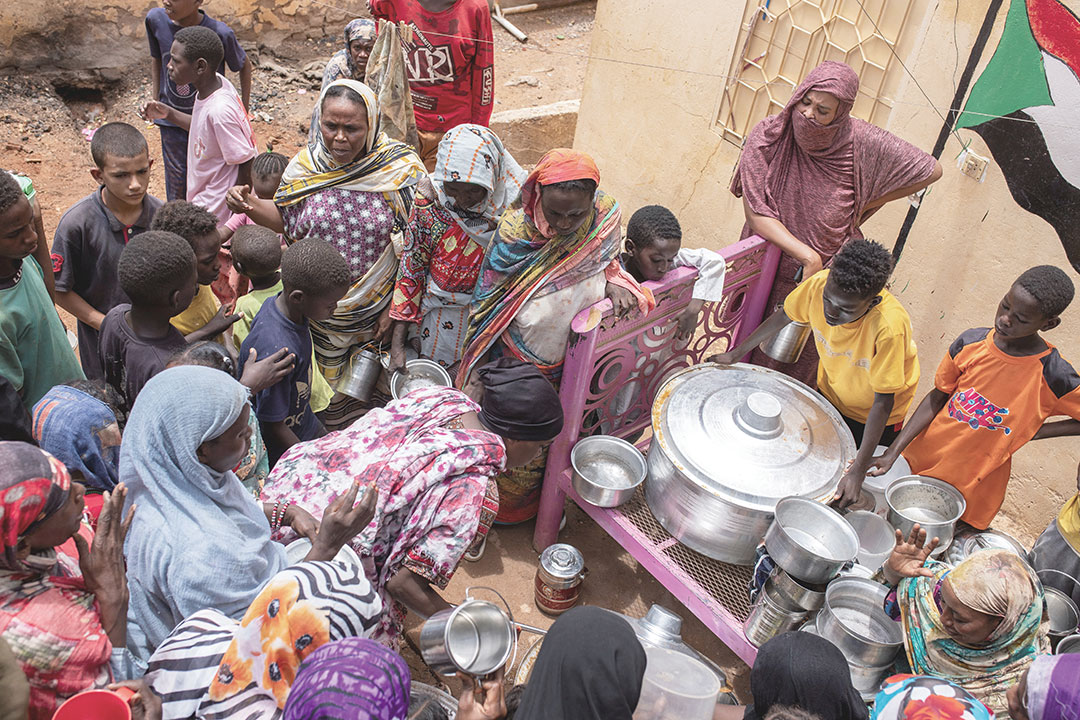
CHINA WANTS RESOURCES, ACCESS
China has a long-standing history with Sudan that dates to mutual diplomatic recognition in 1959. At one stage, China was Sudan’s largest arms provider. Beijing’s stake in Sudan has decreased significantly since South Sudan took most of the oil reserves when it became independent in 2011. Still, Sudan remains one of China’s important partners, with an export market worth $1.3 billion.
China is interested in Sudan’s gold deposits and a Port Sudan location on the Red Sea as a regional trade center, an analyst told Voice of America. The Chinese government has not officially taken a position on Sudan. Amnesty International says that China has armed both sides in the conflict, providing Chinese-made armed drones, advanced drone jammers, mortars and antimateriel rifles. Reports say that China is negotiating to sell advanced jet aircraft to the SAF. Unconfirmed reports say the SAF already has some of the jets.
China has built a $140 million harbor in Port Sudan to ship camels and is in talks with the SAF to invest in a new oil refinery and rebuild the country’s largest slaughterhouse, according to a December 2024 Bloomberg report.
UAE ‘SINGLE BIGGEST PLAYER’
Researchers and reporters say that the UAE has taken an active part in the Sudan war. The Sudan Conflict Observatory says it began tracking UAE movements in 2023 and reported 32 flights between June 2023 and May 2024, concluding with “near certainty” that they were weapons transfers from the UAE to the RSF. The Sudan Tribune reported in late 2024 that the UAE had agreed to stop supplying weapons to the RSF.
Analysts say that the UAE is the foreign player most invested in the war. It regards resource-rich, strategically located Sudan as an opportunity to expand its influence and control in the Middle East and East Africa, according to news site The Conversation.
“Since 2018, the UAE has invested over U.S. $6 billion in the country,” wrote researcher May Darwich for The Conversation. “This includes foreign reserves in the Sudanese central bank, agriculture projects and a Red Sea port. The UAE has also recruited and paid fighters from Sudan, drawn mostly from the Rapid Support Forces, to join its conflict in Yemen.”
Others have said that the UAE has a significant influence over the warring parties and could use it to promote peace.
“The UAE is the single biggest player in Sudan’s war,” wrote Sudanese journalist Nesrine Malik in a January 2025 column for The Guardian. “The Gulf state has a pattern of playing kingmaker in Africa’s wars, taking a punt in order that, if its chosen partner prevails, the UAE will be granted access to vast resources and geopolitical power.”
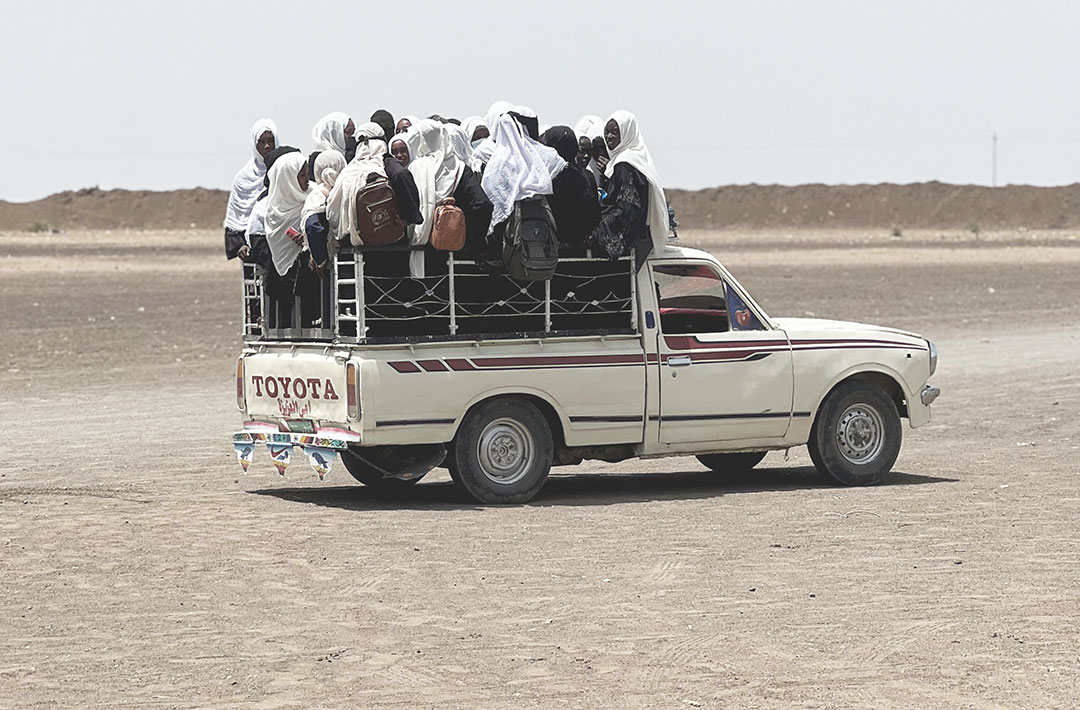
SAUDI ARABIA FORMS ALLIANCE
Like the UAE, Saudi Arabia has heavily invested in Sudan’s economy, focusing on infrastructure, mining, agriculture and port access to the Red Sea. Saudi Arabia is trying to secure sea lanes and protect its long-term investments. It has openly supported the SAF under al-Burhan.
Sudanese troops also have reportedly served as hired soldiers in Saudi-orchestrated campaigns, strengthening the ties between the two governments.
The alliance with the SAF serves Saudi Arabia’s regional ambitions, including supporting Crown Prince Mohammed bin Salman’s leadership and advancing his long-range Vision 2030 economic, social and cultural goals. The plan dates to 2016.
The Saudi government’s cooperation with the SAF is rooted in military cooperation, economic investment and strategic regional interests, including efforts to counter Iranian influence. However, because of the region’s political complexities and the devastation of Sudan’s war, Saudi Arabia also has tried to organize peace talks. The result has been a complicated and sometimes fragile alliance between the two countries.
PROLONGING THE WAR
Each year, the International Rescue Committee’s Emergency Watchlist analyzes which countries are most likely to experience a new or worsening humanitarian crisis. For the second consecutive year, Sudan topped the list in 2025 as the country’s collapse accelerates amid the brutal war.
The committee says that rather than advancing diplomacy, outside powers are fueling the conflict by funneling weapons to their allies. “SAF and RSF leaders appear to believe that continued fighting best serves their interests, leaving Sudan on a trajectory toward catastrophic humanitarian collapse,” the committee noted.
Emadeddin Badi, a senior fellow with the Middle East Programs at the Atlantic Council, contends that extensive foreign interference in Sudan is only prolonging the war.
“Amid this web of external interference, Sudanese military elites have continued to gamble their nation’s future for the fleeting promise of dominance, leaving devastation in their wake,” Badi wrote.

